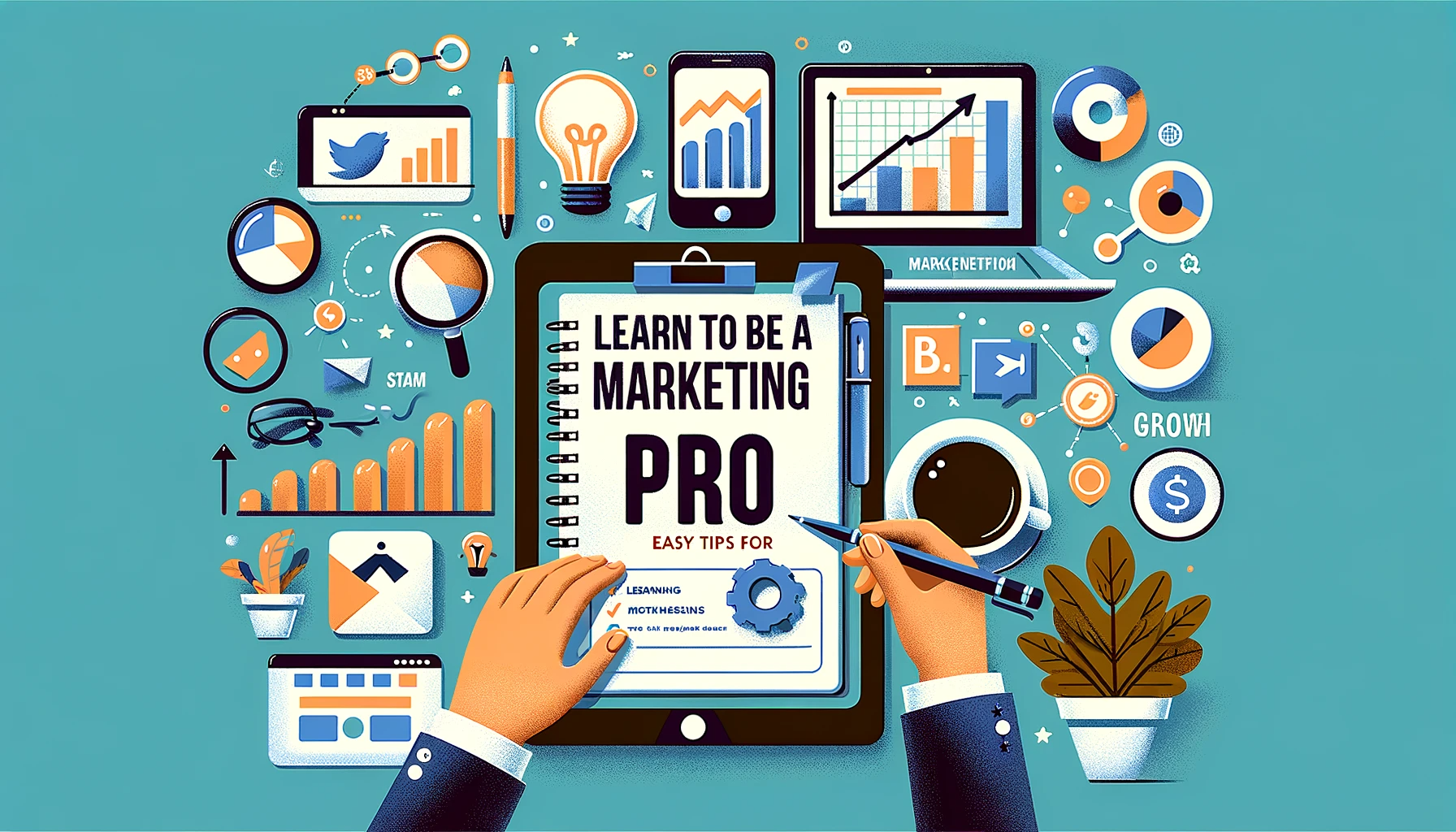
User Review
( votes)Marketing is important for small businesses. It helps them stand out, attract new customers, and increase sales. Without it, small businesses may struggle to reach their target audience. In this article, we will explore why marketing is crucial for small businesses to thrive.

Why Marketing is Important for Small Business
Marketing Builds Brand Awareness
Marketing helps small businesses become more well-known. By using strategies such as advertising, social media, and content creation, they can reach more people. This also helps create a good impression and trust with customers. By engaging with the target audience and providing helpful information, businesses can make people more aware of their brand.
Enhancing Customer Engagement
Businesses can enhance customer engagement by using social media and digital marketing effectively. They can create interactive and personalized customer experiences. Businesses can engage with their customers on a more personal level by providing insightful content through platforms like Instagram and Facebook. Implementing strategies such as email marketing and personalized recommendations can help create a more tailored experience for customers, increasing their engagement and loyalty.
Incentivizing and rewarding customer loyalty is another way to enhance customer engagement. Exclusive discounts, loyalty programs, and personalized offers can encourage customers to engage more with the brand and promote repeat business. By providing special perks and rewards to loyal customers, businesses can build a stronger relationship with them and keep them coming back for more.
These strategies help small businesses create a genuine and lasting connection with their customers, leading to increased trust, engagement, and ultimately, sustained business growth.
Importance of Repeat Business and Customer Loyalty
Small businesses depend on repeat business and customer loyalty. This means having regular customers who keep coming back. It’s important for long-term success because it means a steady income and not having to spend a lot of money on finding new customers. Happy customers also tell others about the business, bringing in even more customers.
To encourage this, small businesses can use loyalty programs, provide great customer service, and keep in touch with customers through email and social media. By focusing on keeping customers happy, small businesses can make more money, build a better reputation, and save money on marketing. So, customer loyalty is a very important part of marketing for small businesses.
Discover the Right Marketing Strategy for Your Business

Identify Your Business Type: B2B, B2C, C2B, or C2C
Identifying the type of business you run is important. There are four types: B2B, B2C, C2B, and C2C.
- B2B businesses sell products or services to other businesses
- B2C businesses target individual consumers as their primary customer base
- C2B companies enable individual consumers to sell products or services to businesses
- C2C businesses facilitate transactions between individual consumers
Once you know your business type, target the right audience.
- B2B businesses generate leads and sales through direct interactions with other businesses
- B2C businesses target individual customers
- C2B businesses focus on attracting businesses through customer-generated content or services
- C2C businesses rely on customer-to-customer interactions to generate sales
Different marketing strategies work for different business types.
- B2B companies benefit from personalized and professional marketing to build long-term relationships
- B2C companies often use mass marketing to reach a wider consumer base
- C2B businesses thrive on user-generated content and testimonials
- C2C businesses often use social media to create a sense of community and encourage peer-to-peer interactions
Create a Target Audience Profile
Creating a target audience profile for small businesses involves considering demographics and psychographics. This includes age, gender, income level, lifestyle, interests, and values. Analyzing behavior and preferences is crucial to tailoring marketing strategies effectively. Understanding how the audience interacts with products or services, as well as their preferences and purchasing habits, helps businesses meet their needs and stand out.
Gathering data through surveys, interviews, and social media monitoring is important. This helps create a comprehensive profile to guide marketing efforts toward reaching the right audience with the right message at the right time.
Decide on Marketing Strategies that Fit Your Business
When marketing for a small business, consider the target audience’s characteristics and needs. This includes their demographics, preferences, and behaviors. This info helps choose the right marketing channels and messaging. Also, consider the business type—B2B, B2C, C2B, or C2C—as it impacts marketing effectiveness.
For example, B2B businesses may benefit from email campaigns and industry-specific events, while B2C businesses might prefer social media ads and influencer partnerships. Align marketing strategies with business goals, brand identity, and budget. For instance, if you are aiming for brand awareness on a limited budget, consider content marketing and social media engagement. By understanding the audience, and business type, and aligning with business goals, brand identity, and budget, small businesses can make informed marketing decisions.
Types of Marketing for Different Business Needs

How B2B Businesses Get Leads
B2B businesses use different marketing strategies to generate leads for their sales pipeline. They include content marketing, email marketing, and social media marketing.
These strategies involve creating valuable content, reaching out to potential clients through email, and maintaining an active presence on social media platforms.
Marketing is important for B2B businesses because it helps build brand awareness, establish credibility, and attract potential clients.
For example, creating informative blog posts and sharing them on social media can attract prospects interested in industry-related content. Sending personalized emails to targeted leads can also result in new business opportunities.

Engaging Customers in B2C Marketing
B2C businesses have various strategies to engage and connect with their target customers in the marketing process.
They can implement personalized marketing campaigns based on customer data and preferences to create a more meaningful connection.
Actively engaging with customers on social media platforms and responding to their inquiries or feedback in a timely manner can also enhance customer engagement.
Offering loyalty programs, exclusive discounts, and personalized offers to regular customers can help build brand loyalty and encourage repeat business.
Incorporating user-generated content, such as customer reviews and testimonials, into marketing efforts can build trust and credibility with potential customers.
The Rise of C2B Marketing Strategies
The rise of C2B marketing strategies in recent years is because individual consumers now have more power and influence in the market. This is due to social media and online platforms, where consumers can directly interact with businesses and have their voices heard. Unlike traditional B2C and B2B marketing, C2B strategies focus on the consumer, allowing for personalized and targeted marketing to cater to individual needs.
This direct engagement and feedback loop can lead to increased brand loyalty and trust. Effective tactics for C2B marketing include using user-generated content, influencer partnerships, and personalized marketing campaigns based on consumer data.
C2C Marketing and the Importance of Trust
In C2C marketing, trust is really important. It helps businesses build and maintain positive relationships with their customers.
Transparency is a key factor in building trust. Customers trust businesses that are honest and open about their products and services.
Consistency is also crucial. Businesses that consistently provide high-quality products and services are seen as more trustworthy.
Trust affects the success of C2C marketing strategies by creating loyal customers who are likely to make repeat purchases and recommend the business to others.
Conclusion
Small businesses need to focus on marketing to compete. Good marketing can help them reach customers, build brand awareness, and increase sales. Even with limited resources, small businesses can benefit from targeted marketing to grow more efficiently.







